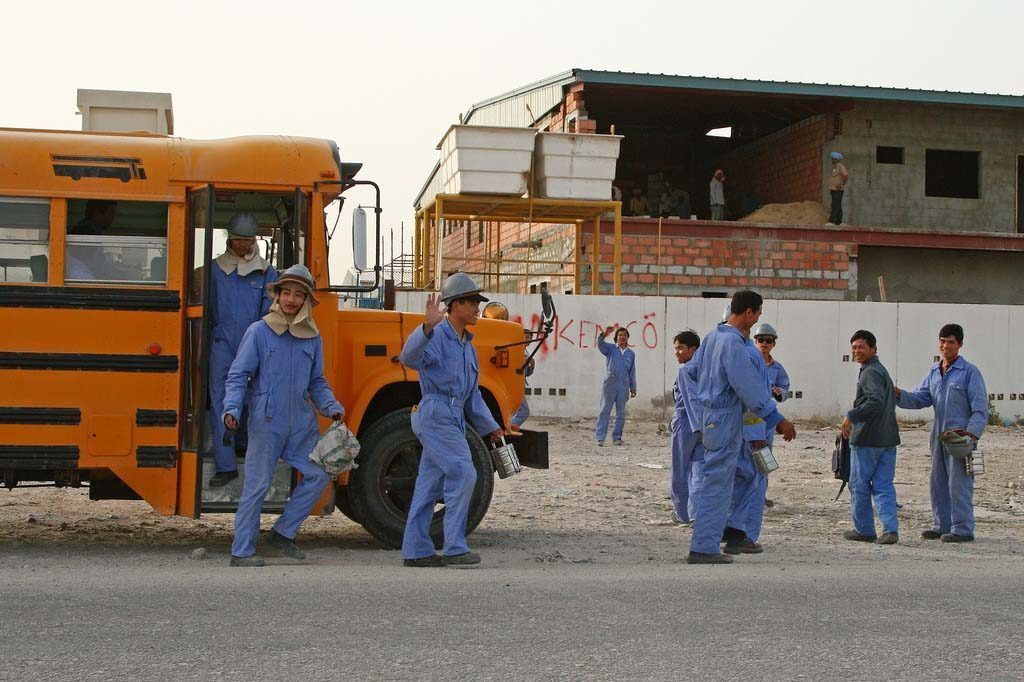The survey interviewed over two thousand Qataris and resident expatriates to know more about labour law awareness in the country.
A social scientific research initiative conducted by Qatar University, revealed how public awareness surrounding the new legislative reforms in Qatar remains low despite awareness efforts.
The ‘Qatar’s Labour Law Changes and Workers Welfare’ study by the Social and Economic Survey Research Institute [SESRI], surveyed around 2,760 citizens including low-income and high-income expatriates to identify their knowledge of the historic labour law changes.
The individuals were surveyed over the phone from September 22,2020 to January 19, 2021. The study tapped into nine different languages to ensure inclusivity.
Most of the individuals had mostly a “positive perception” of the recent labour law changes and their economic impact on the country’s economy and expatriates working and living conditions, SESRI said.
However, the results also showed that many from the community were not aware of the labour law change, with only a few saying they had a grasp on the recent developments.
In fact, only 57% of the Qatari respondents said they are “at least slightly familiar with the changes.”
In addition, the survey results revealed that 70% of Qatari respondents and 74% of higher-income expatriates think the new legislative changes will make foreign workers less dependent on their employers.
Meanwhile, only 54% of lower-income expatriates think the same.
Out of the three chosen groups, 42% lower-income expatriates think the changes will make foreign workers more dependent on their employers when compared to 28% of Qataris and and 24% of those with high-income.
More importantly, the survey reported that more than three quarters of high-income and lower-income expatriates think that the minimum wage should be increased from QR 1000.
Meanwhile, 58% of Qataris said that minimum wage should be kept at QR 1000.
Some 64% of Qataris and over three-quarters of resident expatriates reported that these labour law changes made Qatar’s economy somewhat or much better, according to the survey. Non-Qataris gave a higher positive impact rating to the economy compared to citizens.
All groups strongly agreed that the labour laws will improve the working conditions of foreign workers. 51% of Qatari nationals, 60% of higher-income expatriates, and 60% of lower-income expatriates agreed.
As for the future impact of labour law and its effect on the working conditions of foreign workers, 50% of lower-income residents and 52% of higher-income residents said that these changes will better make their lives much better, meanwhile only 38% of Qataris agreed.
SESRI also added that over two-thirds of those who were surveyed reported that their business or workplace was subject to the Ministry of Administrative Development, Labor and Social Affairs [MADLSA] inspection.
Results showed that those who were inspected by MADLSA were more likely to abide by Qatar’s Wage Protection System (WPS).
“The country has come a long way in this area. Qatar has implemented various laws that protect migrant worker rights, including recent improvements to labour laws,” said Dr. Kaltham Ali Al Ghanim, Director of SESRI.
Historic labour reforms
Last year, Qatar introduced the region’s first ever non-discriminatory minimum wage in what was considered part of a major ‘historic labour reform’ programme.
In addition to the minimum monthly basic wage of 1,000 Qatari riyals QR (275 USD), the new legislation stipulates that employers must pay allowances of at least QR 300 for food and QR 500 for housing, should employers not provide workers with these directly.
As part of the major labour reform agenda, Qatar has drastically enhanced monitoring across the board to detect violations, enacting swifter penalties and further strengthening the capacity of labour inspectors, according to an announcement made by the Government Communications Office (GCO).
Employers who pay their staff less than the minimum wage will face one-year in jail and a QR 10,000 fine.
Read also: Qatar says labour reforms ‘far from complete’ following Amnesty ‘Reality Check’ migrant report
The GCO also said that since the reforms and new minimum wage were announced in September 2020, some 5,252 companies with a total of 222,042 workers have already updated their payroll systems.
These labour reforms also include the dismantling of the controversial “kafala” or sponsorship system, becoming the first country in the region to do so.
Workers are no longer required to obtain an exit permit to leave the country, or a No Objection Certificate (NOC) to request permission from former employers to change jobs.
In an exclusive interview with Doha News last month, senior International Labour Organisation (ILO) official, Houtan Homayounpour said more work needs to be done to ensure the protection of workers in Qatar, though authorities should be recognised for the work that has gone into making these changes.
Follow Doha News on Twitter, Instagram, Facebook and Youtube







